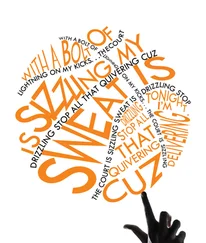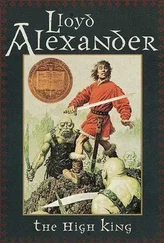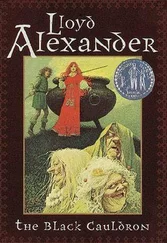That evening, as I lay on my cot, I wondered whether I should give any more thought to killing Hitler. After seeing his ghostly figure in the corridor, I knew his time was short. However, there was nothing in my religious upbringing that would cause me to lose sleep from murdering a tyrant. I had been raised Lutheran, but my devotion was lax. My father rarely went to church; my mother attended sporadically on Sundays and on religious holidays. I sometimes went to church with my mother, but only because she wanted me to go. I had little desire to be instructed in the ways of religion. Some satisfaction would be gained, posthumously of course, of having my name in history books as the “woman who killed Hitler.”
That night, Eva tapped my shoulder. I had fallen into a deep sleep, despite the reoccurring blasts, and her touch startled me. She carried a torch. I rose up on my elbows and asked in a groggy voice, “What’s the matter? Is something wrong?”
She shook her head. Then I saw the tears in her eyes. “My brother-in-law is dead. The security forces took him up to the garden and shot him. I begged for his life, but Adolf wouldn’t hear of it. He called him a ‘drunken, womanizing fool.’ My sister is about to give birth, but it made no difference. I said, ‘You are the Führer.’” She sat on the edge of my cot and hung her head. “Poor, poor Adolf. They have all deserted him; they have all betrayed him. But it’s better that ten thousand others die than he be lost to Germany. My sister will have to live without her husband.”
A spark of life returned to her eyes. “Adolf and I are to be married in about an hour. You must dress. I want you to be there, Magda.”
“What time is it?”
“A few minutes after midnight. Come as soon as you can. We are to be married in the small conference room. I’ll let the guard know you are invited.” She rose from my cot and stole out of the room.
I climbed out of bed and reached underneath it for the box that held my things. I’d not had a real bath in days, only given myself quick splashes of water from the kitchen faucet. The only bathtub was in Hitler’s apartment and only he, Eva and the Goebbels family were permitted to use it.
I pulled out Eva’s blue dress and put it on. It fit well enough that I could wear it. I washed at the kitchen sink, making myself as presentable as I could for the wedding. A butcher knife glinted on the counter and I considered taking it, but then discarded the idea. I had no way of concealing it. Besides, I didn’t know how many people would be at Eva’s wedding or how close I’d be able to get to Hitler.
I left the kitchen and walked through the darkened canteen to the passageway that led to Hitler’s lower bunker. At the bottom of the stairs, the SS guard let me pass after I told him my name. I noticed he wore a holstered pistol. I went past the conference room where Hitler held his daily briefings and found myself at the door of the smaller room. Neither was large; the more expansive of the two contained a table in its center. I pictured the generals and officers crowded around it as Hitler issued orders for his crumbling offensives. Everyone knew Berlin was falling. The Führer was an “emperor with no clothes,” but no one laughed at him. What little power he had was near its end.
The door stood open. Eva saw me and waved me in. She was wearing the white dress she had shown me a few days earlier. Her face was reddened with blush and she looked somewhat pretty, although nothing like the woman of her carefree days at the Berghof. Hitler, attired in a dark suit and matching tie, sat in a chair looking glum and preoccupied. He wore the Party pin on his lapel. Goebbels, with his thin, mousy face, stood nearby, his hands folded in front of him. His expression was as stern and uncompromising as I’d seen in all the pictures taken of the Propaganda Minister. The skin underneath his eyes was lined with black from lack of sleep. Martin Bormann, looking like a bulldog, occupied himself with a paper that lay on the table. It was the marriage certificate for Adolf and Eva.
Hitler nodded at me but did not speak. I stood next to Eva. She grabbed my left hand with her right in a strong but cold grip. I looked down at my fingers and noticed the silver wedding band given to Karl and me by the Führer on our wedding day. Eva wore no such ring.
Soon an SS man appeared at the door accompanied by a grubby man dressed in civilian clothes. His jacket, shirt and face were streaked with dirt. Goebbels introduced him as Herr Wagner, a Berlin Councilor and a member of a fighting unit not many blocks away from the bunker. Goebbels had pulled Wagner from the streets to conduct the wedding.
The civil ceremony did not take long. Hitler and Eva swore they were of Aryan descent and had no hereditary diseases that would make them unfit for marriage. Hitler signed the certificate and then handed the pen to Eva. I watched as she started to sign her name as Eva Braun. She laughed, slapped her hand in jest and then wrote: Eva Hitler, born Braun. The couple kissed quickly and then took turns shaking hands with everyone in the room. Hitler said nothing to me as he took hold of my hand. No words were needed. His vacant look and weak handshake told me everything I needed to know about his condition.
“I am so happy, Magda,” Eva said to me as she led me to her husband’s private apartment. This room contained a sofa and small table. A pretty Dutch still life hung on the wall. Hitler’s desk was also in the room and above it was a portrait in an oval frame.
Eva pointed to the picture of a stern-looking older man in a powdered white wig with a starburst silver medal pinned to his dark waistcoat. “Do you know who that is?”
I shook my head.
“Frederick the Great,” she said. “Adolf stares at it for hours, as if the old warrior is talking to him.” She sighed. “Pointless. All of it is pointless. A dead King of Prussia cannot save the Reich. How I wish he could.” Her eyes filled with tears.
Hitler walked into the room followed by his small entourage. Eva wiped her tears away and stood by him. I wanted to express my hatred, my overriding wish to see him dead. Despite my loathing, I was struck by his precipitous personal decline. Perhaps it was the late hour, but he had always worked late into the night; perhaps all his illustrious illusions had finally shattered. He was a noxious shadow of his former self. His chalk-colored face sagged from his months of living underground. His wrinkled suit and stooped gait mirrored the collapse unfolding over us. As the Reich’s leader crumbled underground so did Germany above.
Others appeared at the door, including Cook, Frau Goebbels and the secretaries, all invited by the groom. The room grew warm from the bodies crowded inside and I moved away from Eva and Hitler to be closer to the passageway, where I could breathe.
Hitler’s valet brought champagne and the guests drank a toast to the bride and groom. A small gale of laughter and clinking of glasses died, and everyone looked to the Führer. He sat on the couch eating a piece of iced cake. Crumbs fell from his mouth onto the lapels of his suit. Eva frowned but said nothing to chastise him, as she would have in her days at the Berghof.
When he finished eating, he said, “Now is the time to remember better days.” He wiped his fingers on a champagne towel and leaned back against the couch. “My life has always been devoted to Germany and the Party. How wonderful it was in the early days when every man, woman and child rose up in pride to answer the call of National Socialism.”
Everyone’s eyes, except Bormann’s, glazed over. We were in for a long harangue about the “good old days” of the Party and reminiscences of the Führer’s rise to power. He talked for nearly an hour. No one could do anything but hold their champagne glasses and listen as he pontificated about his youth, the glory of the early years and the terrible fate now befalling the Nazis. Finally, he lowered his head and stared at his hands. His guests remained silent, waiting to be dismissed.
Читать дальше












